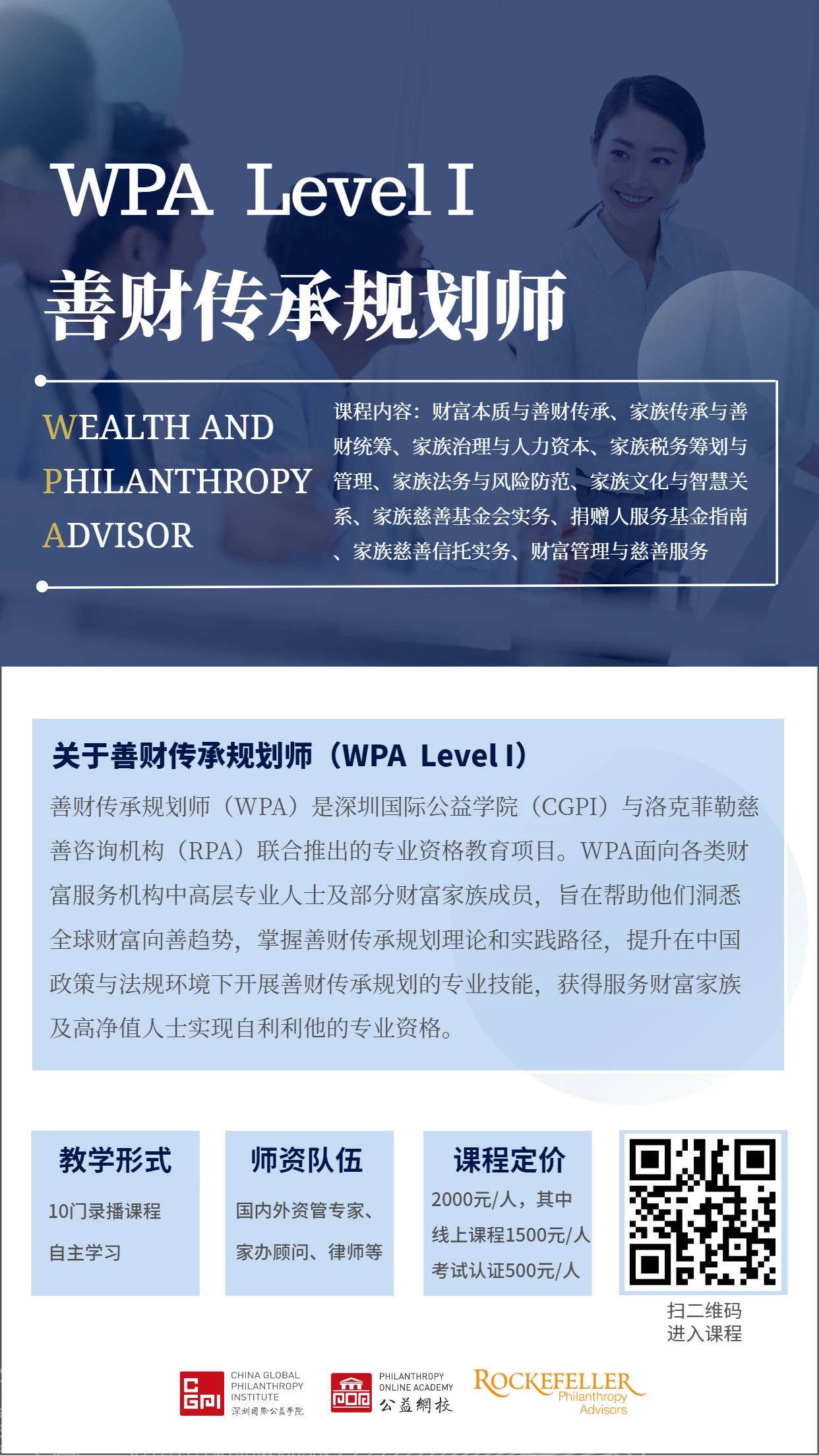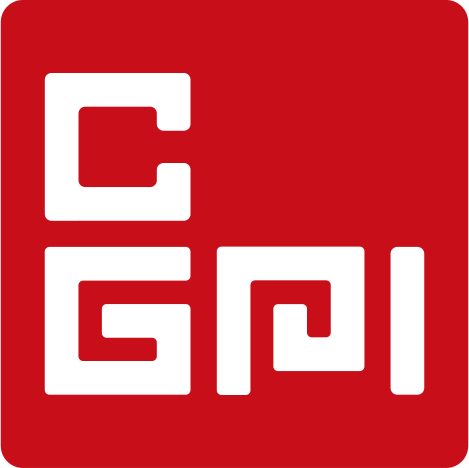编者按
回馈社会可能是众多人生选择中最有价值的活动之一,但它具有挑战性,更好地花钱可能比如何赚钱还要难。很多慈善家会聘请顾问帮助他们规划并一起工作,确保把好事做好,真正享受慈善事业的乐趣。
本文作者来自美国知名的慈善顾问公司阿若贝拉(Arabella Advisors)。戴安娜·泰勒·希思(DianaTyler Heath)负责与家族和个人的合作,帮助他们构建治理结构和人员配置,建立资助流程,并从头开始建立基金会。她还帮助家族基金会成功地将下一代人纳入理事会,帮助他们成功地实现领导层的过渡。
作为总法律顾问,安德鲁·舒尔茨(Andrew Schulz)负责管理阿若贝拉的法律事务,为公司领导层和员工提供法律咨询,并确保阿若贝拉基金会和独立非营利组织帮助管理的风险基金等合规运营。他在税务、立法和监管方面具有广泛的专业知识,包括免税组织、慈善捐赠、财政资助和国际捐赠。
今年,很多人的注意力都转向了捐赠。也许您意识到您对捐赠的热情比预期的高,或者您注意到收件箱中慈善募捐信息增多,也许您决心在未来的慈善事业中更有战略眼光。不管是什么原因,认真地做一个总结和规划,不仅要考虑您的年度捐赠,还要为您的长期慈善传承做计划。
如果您足够幸运,有足够的资源可以对慈善事业进行战略规划,需要制定影响力时间表、选择扩大慈善事业的工具、决定如何让家族成员参与进来。作为在这一领域工作了几十年的专业人士,我们鼓励您在当下和未来慈善事业发展中,在与您的顾问(财富顾问、会计师、律师或慈善顾问机构)讨论时,考虑以下问题。
资源
需要明确可以为慈善事业投入多少资源,但这一点往往没有得到应有的充分关注。
您真正愿意为您的慈善事业投入哪些资源?
除了今天可以捐赠的金钱以外,您会投入什么资产来为您的捐赠提供长期动力?
有哪些收入和税收考虑影响了这些选择,它们又会如何改变?
您有兴趣在慈善事业上投入多少时间?
有些客户将慈善事业视为一项全职工作,而另一些客户则依靠慈善顾问来完成这些工作并节省时间。

目标
您希望通过慈善事业实现什么目标?
您是否希望解决某个特定的主题、地理区域或长期存在的社会问题?
您希望立即取得成果,还是打算长期专注于同一个目标?
成功意味着什么?
改变需要时间,挫折也是常见的,所以了解自己对创造改变的耐心是一个重要的考虑因素。此外,根据您的目标,您所需要的资源的类型、数量和时间也会有所不同。

家族参与
您的家族成员可能已经在某种程度上参与了您的慈善事业,但明智的做法是考虑现在和将来他们参与的方式。他们是否有兴趣并愿意参与其中?
在塑造您的慈善愿景的过程中,尽早征求家族成员的意见是很有帮助的,而不是在您已经规划好自己的路线后,再试图得到他们的支持。
与希望参与其中的家族成员讨论,将有助于引导您的慈善愿景。它还将帮助您评估个人和家族的可用资源(时间、才能、财富和关系),以确保慈善事业与您的个人热情和可支配的集体资源保持一致。

工具
家族基金会并不是慈善家唯一的途径。现在,慈善家有了更多的选择来管理和配置他们的资源。
根据您的目标、时间安排和可用资源的不同,可以选择最适合家族基金会、捐赠者服务基金、慈善信托或任何工具的组合。
对于每一种选择,都需要考虑权衡,比如您的控制能力、税收减免和未来基金的灵活性。匿名性是一个重要的考虑因素吗?有些工具比其他工具提供了更大的捐赠者保护。
最后,少数慈善家正在考虑创新的模式,如混合型组织甚至公司实体来实现他们的目标,以及在传统的赠款之外,参与影响力投资。
这些新方法是否适合您的愿景?
我们鼓励您和您信任的顾问一起考虑这些话题,或者寻找其他能够在这个过程中指导您的专家。您不需要马上知道所有的答案,但现在花时间确定知道什么和不知道什么,可以大大增加慈善事业成功的机会。
课程推荐
善财传承规划师(Wealth and Philanthropy Advisor, WPA)是深圳国际公益学院(CGPI)与洛克菲勒慈善咨询机构(RPA)联合推出的专业资格教育项目。本项目将带领学员洞悉全球财富向善趋势,掌握善财传承规划理论和实践路径,提升在中国政策与法规环境下开展善财传承规划的专业技能,具备服务财富家族及高净值人士实现自利利他的专业资格。
课程收获
1.通过系统学习,掌握善财传承规划专业知识
洞悉全球财富向善前沿趋势;理解并贴合高净值客户需求;提升国内善财规划专业技能;延伸自身业务的深度和广度;实现超高净值客户传承需求。
2.CGPI 和 RPA 联合颁发专业证书
完成课程学习后,若参加并通过相应测试,按照要求提交申请,通过审核可获得深圳国际公益学院与洛克菲勒慈善咨询机构联合颁发的WPA Level I 证书。
3.优先参与“善财传承规划师”项目线上线下主题活动
以下为英文原文,来源:Diana Tyler Heath and Andrew Schulz, Arabella Advisors
What Should Philanthropists and Their Advisors Be Talking About?
Diana Tyler Heath and Andrew Schulz, Arabella Advisors
Giving back can be one of your most rewarding activities, but it doesn’t come without challenges. Engaging an advisor to help you plan and work with you along the way can ease the burden and ensure you genuinely enjoy your philanthropy.
As we approach the end of the year, many peoples minds turn to giving. Maybe you’re realizing that you have more funds available than expected, or maybe you’re noticing an uptick in charitable solicitations in your inbox. Perhaps you’re resolving to be more strategic with your philanthropy moving forward. Whatever the reason, the end of the year can be a good time to not just think about your annual giving, but also plan for your long-term philanthropic legacy.
If you are fortunate enough to have the resources that allow you to be strategic about your philanthropy, you likely face decisions about the timeline for impact, the vehicles you could use to augment your philanthropy, and if and how you might involve your family. As professionals who have worked in this sector for decades, we encourage you to consider the questions below in discussions with your advisors (wealth advisors, accountants, attorneys, or philanthropic and impact investing advisors like Arabella), now and as your giving evolves.
Resources. It may seem obvious that you will need to know what resources you can devote to your philanthropy, but it’s a point that often doesn’t get the full attention it deserves. What resources are you truly willing to commit to your philanthropy, not just now, but in the future? Beyond the dollar amount you can give away today, what assets will you use to fuel your giving over the long term? What income and tax considerations influence those choices now and how could they change? Additionally, how much time are you interested in committing to your philanthropy? Some clients see philanthropy as a full-time job, while others rely on advisors like Arabella to do the legwork and save them time.
Goals. What are you hoping to accomplish through your philanthropy? Is there a specific topic, geographic area, or persistent problem you're hoping to address? Are you driving for immediate results or do you plan to focus on the same goal for the long haul? What does success look like? Change can take time, and setbacks are common, so coming to grips with your own level of patience for change is an important consideration. Also, the type, amount, and timing of resources you will need can vary based on your goals.
Family involvement. Your family may already be involved in your philanthropy in some way, but it’s wise to consider how you’ll want to involve your family in this journey now and in the future. Are they interested and willing to be involved? It can be helpful to seek their perspectives early in the process of shaping your philanthropic vision, rather than trying to get buy-in from family once you have already charted your course. Sitting down with those who you expect to be involved will help guide your vision for your philanthropy. It will also help you assess your available resources (time, talent, treasure, and ties), both as an individual and as a family, to ensure your philanthropy aligns with your personal passions and the collective resources you have at your disposal.
Vehicles. Gone are the days when a private foundation was the only path for philanthropists. Now more than ever, there are greater options for philanthropists to manage and deploy their resources. Depending on your goals, timeline, and available resources, you may determine that a private foundation, a donor-advised fund, a charitable trust, or a combination of any of those vehicles is the best fit. How can you use intermediaries (such as our sister organizations the New Venture Fund, Windward Fund, Hopewell Fund, and Sixteen Thirty Fund), to increase effectiveness and efficiency? For each choice, there are tradeoffs to consider, such as your level of control, tax-deductibility, and future flexibility with the funds. Is anonymity an important consideration? Some vehicles offer greater donor protection than others. Finally, a handful of philanthropists are considering emerging models, such as hybrid organizations and even noncharitable entities to achieve their goals, as well as engaging in impact investing in addition to traditional grant making.Are any of these new approaches a good fit for your vision?
We encourage you to consider these topics with your trusted advisors or to seek out other experts who might be able to guide you along this journey. You don’t need to know all the answers right away, but by taking the time now to at least identify what you know and what you don’t, you can significantly increase your prospects for success.
***
Diana Tyler Heath leads Arabella’s work with families and individuals, helping them achieve impact in ways they find most meaningful. An expert in governance and strategic planning, Diana has helped clients, including a $1 billion foundation, structure their governance and staffing, build grant processes, and establish foundations from the ground up. She has also helped family foundations successfully integrate next generations onto boards, navigate leadership transitions, prepare for an influx of assets and growth in grantmaking, and refine strategy as their work evolves.
As general counsel, Andrew Schulz manages Arabella’slegal affairs, provides legal advice to the firm’s leadership and staff, and ensures that the foundations and independent nonprofits Arabella helps to manage, such as the New Venture Fund, are in compliance with the law. He has expertise in a broad cross-section of tax, legislative, and regulatory issues, including tax-exempt organizations, charitable giving, fiscal sponsorship, lobbying, political activity, and international grant making.
文章来源: 公益网校
- 还没有人评论,欢迎说说您的想法!




